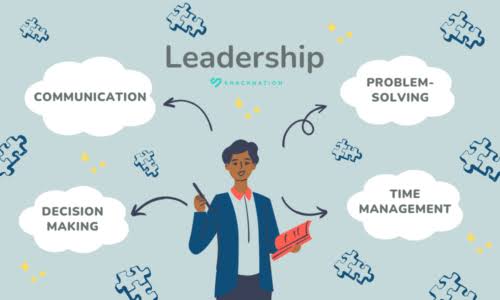Understanding the Nature of a Diverse Workplace
A diverse workplace brings together individuals from a wide range of cultural, ethnic, generational, gender, and professional backgrounds. This richness in experience and perspective has the potential to drive innovation, creativity, and deeper problem-solving. However, it also demands that leaders adopt a more inclusive, empathetic, and strategic approach.
Leaders in diverse workplaces must recognize that differences in values, communication styles, and expectations can create misunderstandings if not managed well. By embracing diversity and committing to equity and inclusion, leadership becomes not only more effective but also more humane and future-oriented.
The Importance of Cultural Intelligence
Cultural intelligence, or CQ, is a leader’s ability to relate to and work effectively with individuals from different cultural backgrounds. In a multicultural setting, high cultural intelligence is critical to avoid bias, misunderstandings, or the alienation of team members.
To develop cultural intelligence, leaders should:
- Take time to learn about the cultures represented on their team
- Ask respectful questions and listen actively to different perspectives
- Adapt communication styles to match different cultural expectations
- Be open to new ways of thinking, even when unfamiliar
Cultural awareness helps create an environment where all employees feel respected and valued.
Practicing Active and Empathetic Communication
Communication is central to good leadership, especially in diverse teams. Miscommunication can occur easily when people have different first languages or cultural norms for speaking and listening.
Effective leaders improve workplace communication by:
- Practicing active listening without judgment
- Asking for clarification rather than assuming meaning
- Using clear, simple language that avoids idioms and jargon
- Checking for understanding by summarizing what’s been discussed
Empathy also plays a major role. Leaders should recognize emotional cues and be sensitive to how each team member processes information. When communication feels safe, individuals are more likely to contribute their ideas and concerns.
Building Trust Across Differences
Trust is the foundation of a productive team. In diverse settings, trust-building must be intentional. People from marginalized backgrounds may have experienced bias in previous work environments, and it may take time before they feel comfortable.
To build trust, leaders can:
- Follow through on promises consistently
- Be transparent in decision-making
- Celebrate and respect differences rather than ignore them
- Advocate for inclusion at all levels of the organization
Trust cannot be rushed, but it can be steadily earned through consistency and authenticity.
Encouraging Inclusive Decision-Making
Inclusive leadership involves actively seeking input from a variety of voices, especially those who might be underrepresented or overlooked. When decisions are made without input from diverse perspectives, the outcomes may fail to serve the entire team or customer base effectively.
Inclusive leaders:
- Invite feedback regularly and respectfully
- Give credit for contributions from all team members
- Avoid interrupting or talking over quieter voices
- Rotate meeting leadership to empower different voices
By creating space for participation, leaders help everyone feel like they belong and are seen as valuable contributors.
Managing Conflict with Cultural Sensitivity
Disagreements are inevitable in any team, but in diverse environments, they can become amplified by cultural differences. Leaders must learn to address conflict early and with sensitivity to the backgrounds of those involved.
Key steps include:
- Identifying the root causes without assigning blame
- Encouraging open dialogue in a neutral setting
- Remaining neutral while promoting mutual understanding
- Mediating disputes based on respect and fairness
Conflict, when handled thoughtfully, can lead to stronger team bonds and a deeper appreciation of differences.
Providing Equal Growth Opportunities
A hallmark of inclusive leadership is ensuring that everyone on the team has access to career advancement, skill-building, and mentorship. In a diverse team, some individuals may feel excluded from informal networks or lack advocates in leadership positions.
To support equitable development, leaders should:
- Implement fair and transparent promotion policies
- Offer mentorship programs for underrepresented groups
- Recognize and nurture talent across all backgrounds
- Set diversity goals for leadership pipelines
When development is equally accessible, it sends a message that everyone’s potential is recognized and valued.
Flexibility and Adaptability in Management Style
No single management style works for every person. In diverse workplaces, leaders need to be flexible in how they motivate, delegate, and provide feedback. This doesn’t mean abandoning their core leadership values—it means learning to meet people where they are.
Some team members may respond better to group recognition, while others prefer private praise. Some cultures value direct communication, while others consider it confrontational. Leaders who adapt their style to individual needs build stronger rapport and higher morale.
Promoting Psychological Safety
Psychological safety refers to an environment where team members feel comfortable expressing themselves without fear of humiliation, punishment, or rejection. It is essential for creativity, risk-taking, and open discussion—all of which drive team success.
To foster psychological safety:
- Acknowledge mistakes as learning opportunities
- Model vulnerability and openness
- Invite dissenting opinions in discussions
- Respond calmly to bad news or conflict
Leaders who promote psychological safety build a culture of trust and continuous improvement.
Leading by Example
Diverse teams observe their leaders carefully. If a leader speaks about inclusion but acts otherwise, credibility is lost. Therefore, leading by example is crucial. Every decision, interaction, and public statement should reflect the values of respect, fairness, and inclusiveness.
This includes:
- Attending diversity and inclusion training
- Publicly supporting inclusive company policies
- Holding peers accountable for biased behavior
- Demonstrating openness to feedback from all levels
When leadership walks the talk, others are more likely to follow.
Conclusion
Leading a diverse workplace successfully requires more than traditional leadership skills. It demands self-awareness, empathy, cultural intelligence, and a deep commitment to inclusion. When these principles are embraced, diverse teams become stronger, more innovative, and more resilient.
Effective leaders recognize that every team member brings something unique to the table. By creating an environment where all feel seen, heard, and empowered, leaders don’t just improve team performance—they help shape a more equitable and forward-thinking workplace for the future.



